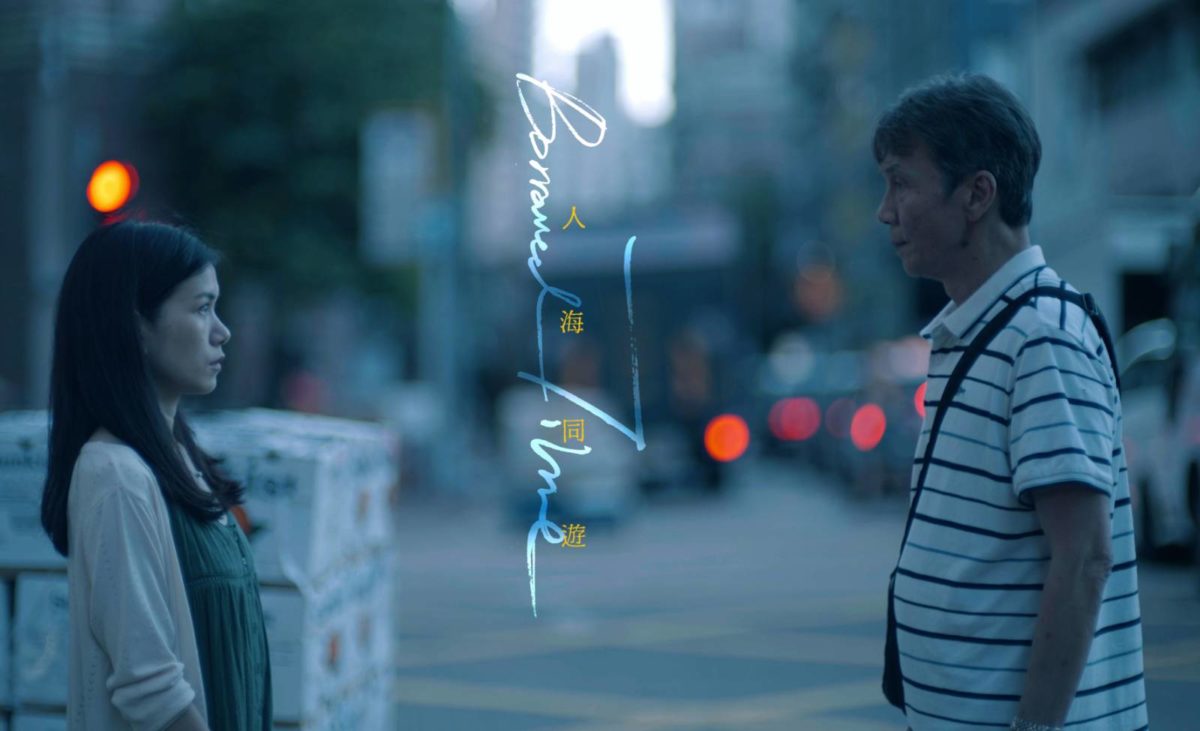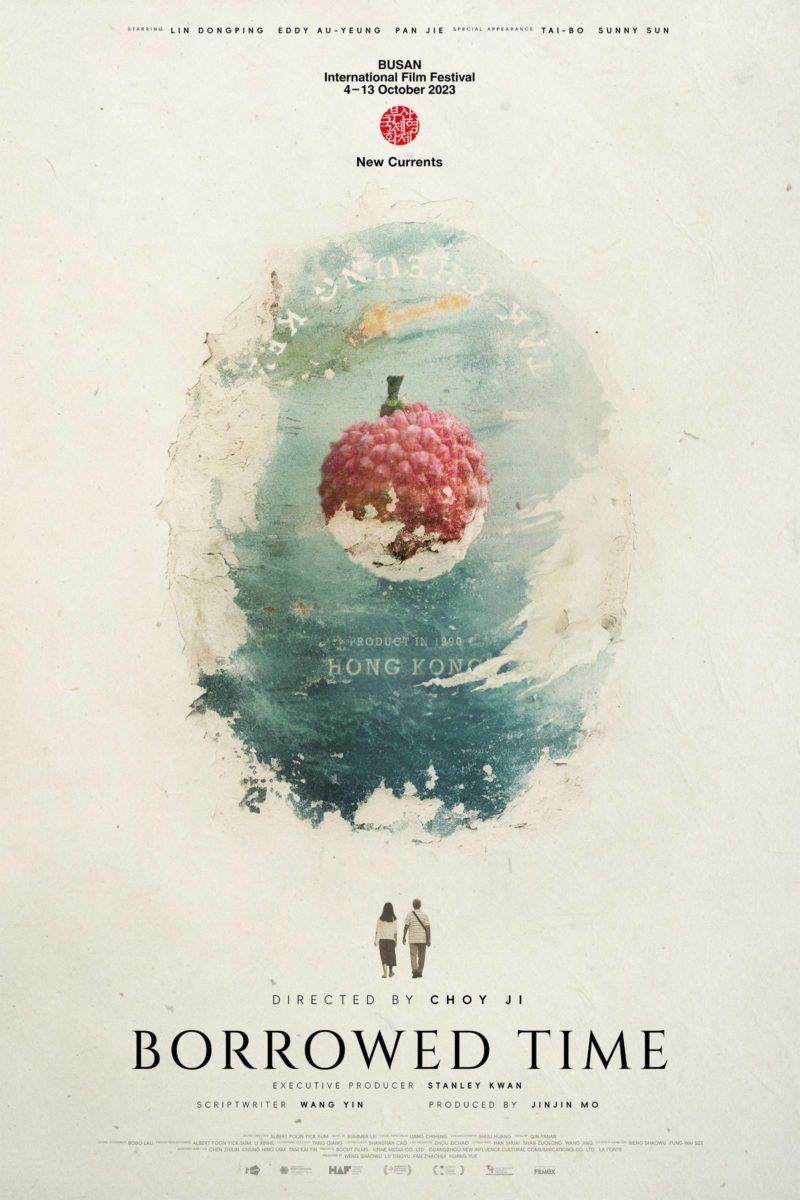Everything in Mak Yuen-Ting’s life is about to change. She will soon join her fiancé’s well-to-do family. She wants her newly and unhappily retired mother, Chau-Kuen, to sell her apartment and move to the Luogang suburbs. Yuen-Ting (played by Lin Dongping) has to figure out how to reveal the truth about her background: that her father Mak Ka-fai (Tai-bo) fled Guangzhou 20 years ago after running up debts, returning to a family he kept secret in Hong Kong. That’s why Chau-Kuen (Pan Jie) won’t participate in Yuen-Ting’s wedding: “I don’t want people to see me that way”––a woman cheated and abandoned.
Borrowed Time, the feature debut from director Choy Ji, is both a voyage of discovery and journey into the past. Yuen-Ting grows up harboring resentment for a world she never knew, even as her own life in Guangzhou has evolved into something she no longer recognizes. Working at the Rural Commercial Bank, she tries to collect delinquent debts from people very much like her father––people who have fled, changed their names, left nothing behind.
In her feature debut, Lin Dongping portrays a Yuen-Ting who observes without committing, who hides her feelings behind an emotionless demeanor. While cleaning out her mother’s apartment she learns new details about her marriage. A discarded box of childhood toys reveals a once-treasured CD, summoning memories of Yuen-Ting’s childhood friend Yuseng (Eddie Au-Yeung). Yuen-Ting travels to Hong Kong to confront her past, only to uncover more secrets.
Thanks in part to excellent work by cinematographer Shuli Huang, Borrowed Time is filled with details that tie past and present, mainland China and Hong Kong. The camera hides from characters, catching them through woods or traffic, following them down dark streets packed with vendor stalls. Crucial conversations take place in silhouette, as if Yuen-Ting’s mother or Yuseng or Mak Ka-fai’s Hong Kong family were unwilling to reveal themselves.
Extended tracking shots reveal that, for all their differences, Hong Kong and Guangzhou can look exactly the same. That may be what Yuen-Ting ultimately learns, but Wang Ying’s subtle screenwriting refuses to make anything so explicit. Borrowed Time instead relies on lighting, settings, and Summer Lei’s contemplative score to establish a largely melancholy tone.
Not that Borrowed Time is gloomy. The world this film captures is lush and vibrant, its characters complex and unpredictable. They may be trapped in a past of bitterness and regret, but they are still struggling for solutions. If the plotting sometimes slips, as in an extended sequence chasing tapirs through a rainforest, the script resists easy sentimentality.

Choy Ji directed shorts and documentaries before undertaking his first feature, collaborating with friends from school––like Lin Dongping, who is not a professional. “She’s an ordinary person,” he laughed after the screening. “Eight years ago after graduating we made a short film together. Then she married and lives a normal life in south China. I moved to Beijing. When we finished this script, I asked her to work on the project.”
Lin Dongping gives a nuanced performance as a woman who’s always guarded herself. Choy Ji credits their extensive preproduction time for building her role. “I told her to play without too much drama,” he remembered. “On set I would always say, ‘Less, less, less.'”
Because of COVID protocols, Choy Ji had to split filming into two stages. He had more time to work on scenes in mainland China; in Hong Kong the pace of production was much quicker. That’s where the veteran Hong Kong director Stanley Kwan (Rouge, Center Stage, and many more) proved essential.
When Choy Ji pitched this project to the China Film Foundation back in 2017, Kwan was a jury member. Several years later he decided to help with the production in Hong Kong, especially with the casting of Mak Ka-fai. “Stanley did a lot of networking for us,” producer Jinjin Mo said. “He not only introduced us to experienced actors, but also helped during the whole production. I never shot in Hong Kong before, and what he did really helped us a lot.”
A Fulbright Scholar, Mo studied at Arizona State University and returned to China to work within a more familiar culture. There she connected again with Choy Ji. “We graduated from the same university,” she said. “When we met up again later in Guangzhou, we decided to form our own film studio. In the beginning we made shorts, documentaries, some commercials. But the idea was to make features.”
Mo said the team spent several years developing Borrowed Time. “It’s not easy for young filmmakers in China. This is my first feature and also Choy Ji’s. It was an honor to be selected as the only Chinese film for the Busan International Film Festival’s New Currents section.”
Choy Ji points to New Taiwanese cinema and the Hong Kong New Wave as major inspirations, as well as directors Hirokazu Kore-eda and Hou Hsiao-hsien. That may be one reason Borrowed Time is so elliptical.
“Actually, I don’t want to make stories that are too clear,” he said. “You might want to know more, but I don’t think that’s necessary.”

